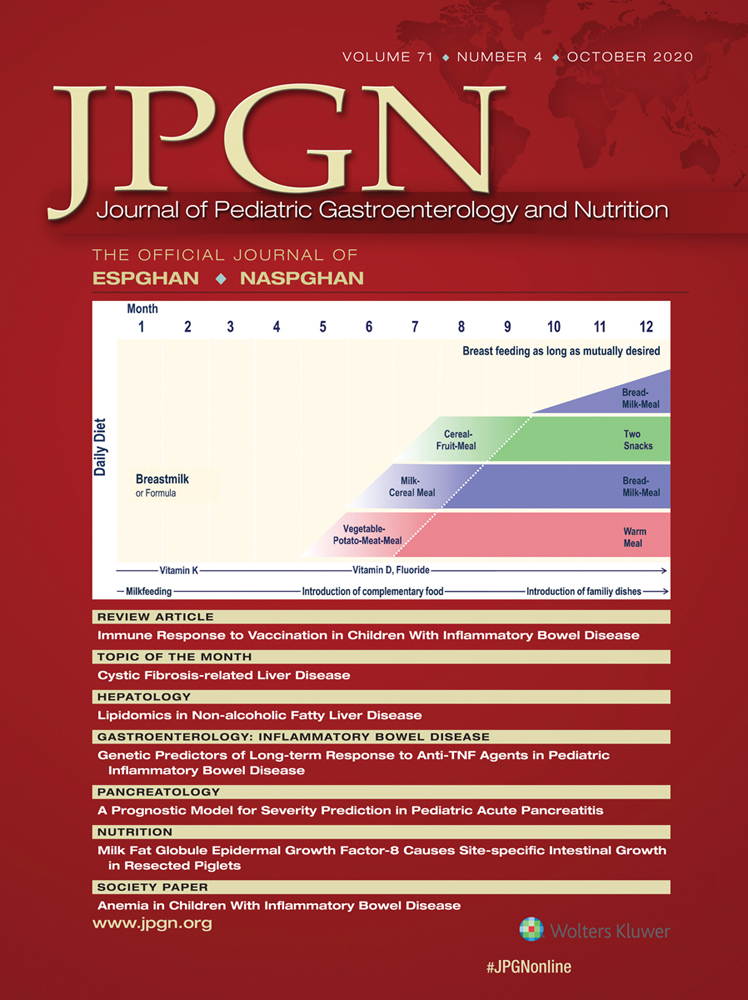Emotional Wellbeing in Parents of Children on Home Parenteral Nutrition
Study Number: RHM CHI0958
The authors report no conflicts of interest.
ABSTRACT
Objectives:
Caring for a child on home parenteral nutrition (HPN) is stressful, and its emotional impact not fully appreciated. This study explored the emotional wellbeing and coping styles of parents and children on HPN.
Methods:
Questionnaire data were collected for parents of children (0–18 years) on HPN. Children 8 years and older completed the revised children's anxiety and depression scale. Parents completed the Hospital Anxiety and Depression Scale, Paediatric Inventory for Parents (PIP) and brief COPE.
Results:
A total of 14 children were included, 20 parents (13 females) and 4 children completed the survey. Parents had mean PIP difficulty and frequency score of 117.9 and 124, respectively, higher compared to parents of children with other chronic illness. PIP scores were significantly higher where children were also enterally tube fed (P < 0.05). Thirty-five per cent parents scored above clinical threshold on anxiety subscale of Hospital Anxiety and Depression Scale and 30% in borderline range. On depression subscale 15% scored above clinical threshold range and 15% in borderline range. Mean anxiety and depression scores in parents of children with short bowel syndrome (11.8, 7.8) were significantly higher than those with neuromuscular disease (5.8, 1.6) P < 0.05. Coping styles differed according to health condition and whether child was enterally fed.
Conclusions:
There is a significant emotional impact of caring for a child on HPN, assessment and treatment of anxiety, depression, and stress should be a routine part of care. Individual needs of the child and parent need to be taken into account in providing the most appropriate psychological support.




